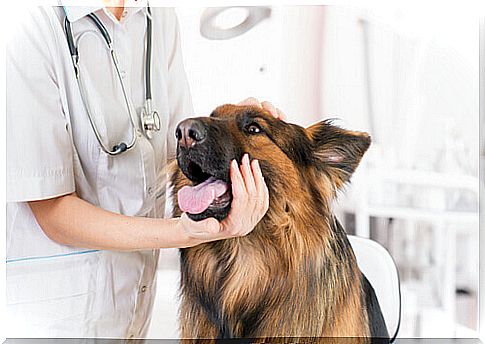Treating Your Dog’s Urinary Infections

It’s not just humans who suffer from changes in the urinary tract. The number of pets that have urinary infections is growing. Therefore, it is important to know these problems better to protect your dog’s health.
It is true that love and dedication are essential to a pet’s health. However, these are not the only aspects that we must attend to when creating our pets. It’s critical to ensure your body and mind are in balance.
Periodic visits to the veterinarian are essential for your health. Keep your vaccinations and antiparasitic treatment up to date as well. To recognize if your dog has symptoms of urinary tract infections, analyze the symptoms.
What are urinary infections and what causes them?
The urinary system acts as a filter in our body. Separates harmful or unwanted components to purify circulating blood.

Its main function is to allow the body to eliminate toxic or disposable substances that have been ingested, or that have entered the body through urine.
Urinary tract organs are: kidneys, bladder, ureters and urethra. The bladder is an auxiliary retention organ. The kidneys are the great filters. The ureters are the drivers. Urine is stored in the bladder until it is eliminated. And the urethra is the final route of elimination of urine.
Urinary infections can appear in any of these organs, but it is more common in the lower part. The bladder and urethra are more exposed to the external environment.
Most urinary infections are caused by the entry of a microorganism (usually bacteria) through the urethra. They usually lodge in the bladder or in the urethra itself. The risk lies in the fact that it can go up through the urinary tract, causing complications to the animal’s health.
How can a dog get urinary infections?
No dog is free from acquiring a urinary tract infection. Among other things, because bacteria are usually present in all environments. But there are dogs that are more exposed, or that are more susceptible to developing the problem.
Greater Risks in Urinary Infections
- Dogs that breed with animals of unknown origin. This is not about race or the absence of a definite race. Breeding your dog with an unknown animal can expose you to a variety of diseases.
- Presence of other diseases, such as prostate enlargement, kidney stones, tumors, urinary incontinence or hormonal changes.
- Exposure to dirty environments where bacteria multiply easily.
- Females are at greater risk of suffering from urinary infections as they squat down to urinate. This way, the vagina is more exposed.
- Immunocompromised dogs due to illness, abuse or unbalanced/insufficient food.
The greater the dog’s exposure to external environments, the higher the probability of coming into contact with microorganisms. But it is not necessary to suspend the tours with your pet. Keeping your immune system strong will allow you to fight off any external microbes.
What are the symptoms of urinary infections?
In the case of urinary infections, it is very important to keep a periodic check with the veterinarian. They often develop silently and symptoms only appear at later stages.
The main symptoms of urinary infections in dogs are :
- Urinate more often and a small amount of urine at a time
- Stress and pain when urinating
- Cloudy and/or smelly urine
- blood in urine
- The dog urinates in places where it did not
- Fever
- loss of appetite
- tiredness or lethargy
- Vaginal discharge (females)
- Irritation around the external genitals
- Licking the vulva or penis frequently
How to prevent urinary infections?
The best way to prevent any infection is to strengthen your dog’s immune system. This is only possible through a healthy life, which includes a balanced diet and regular physical exercise.
It is essential to provide adequate hydration for the dog’s body. Fresh, clean water. Water is essential to allow the formation of urine and the elimination of toxic substances.
How is urinary infections treated?
The main way to treat urinary infections is through the administration of antibiotics. Broad-spectrum antibiotics are generally used for bacterial infections.

But if the infection is caused by fungi or parasites, antibiotics have little effect. In this case, specific fungicides or antiparasitics are used.
The veterinarian will also recommend a special diet to restore normal urine pH and improve the dog’s immune system.
Therefore, if your dog shows any symptoms of urinary infection, it is essential to take him to the veterinarian immediately . Early diagnosis can save and improve your dog’s quality of life.
Main image source: eltpics









